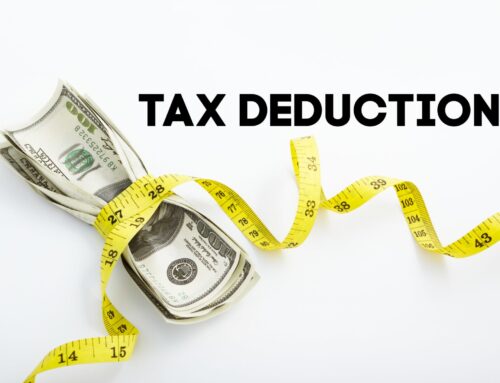Tax Deductions for Small Businesses
Meet Barbara Weltman: A Trusted Expert in Small Business Taxation
Barbara Weltman is a renowned tax columnist for Small Business Trends, known for her expertise in tax law and finance for small businesses. As an accomplished author and attorney, she has penned over 25 books, becoming a vital resource for entrepreneurs. Through her “Idea of the Day®” and the monthly “Big Ideas for Small Business®” e-newsletter, Barbara offers practical insights to small business owners. You can find her wisdom shared on platforms like SBA.gov, Entrepreneur, and AmEx OPEN.
Maximize Your Tax Deductions: Key Insights for Small Businesses
As an entrepreneur, you know the importance of claiming business expense deductions to reduce your tax bill. While many business-related costs qualify, understanding which deductions apply to you is essential, especially as tax laws change. Below, we break down the most common tax deductions claimed by sole proprietors on Schedule C of Form 1040, based on the latest IRS data.
Top Tax Deductions for Small Businesses
- Vehicle Expenses: If your business uses a vehicle, such as a car, truck, or van, you can deduct its operating costs. You can either use the IRS standard mileage rate (65.5 cents per mile in 2023; 67 cents per mile in 2024) or itemize your actual expenses. Keep thorough records to prove business use.
- Employee Compensation: Salaries, wages, bonuses, commissions, and taxable fringe benefits paid to employees are deductible. However, compensation for sole proprietors, partners, and LLC members isn’t deductible as they aren’t classified as employees.
- Contractor Payments: Small businesses often rely on independent contractors to supplement their workforce. Payments to freelancers are deductible, and if you pay $600 or more to a contractor, you must issue them a Form 1099-MISC.
- Supplies: The cost of necessary supplies, like office materials or cleaning products, is fully deductible. You might also take advantage of a safe harbor provision that lets you deduct the cost of tangible property instead of depreciating it.
- Depreciation: When you invest in business property or equipment, you can recover the cost over time through depreciation.
- Rent: Rent paid for business property, whether for an office, store, or factory, is fully deductible.
- Utilities: Utilities, including electricity, internet, and phone services, are deductible, even mobile phone charges. However, if you claim a home office deduction, only the cost of a second landline is deductible.
- Taxes: You can deduct various business-related taxes, such as property, sales, and employer taxes. However, personal state and local income taxes are deductible only on Schedule A of Form 1040, capped at $10,000 for 2018 through 2025.
- Insurance: Business insurance premiums, covering areas like liability, property, and health, are deductible. Small businesses may also qualify for a tax credit of up to 50% for employee health insurance premiums.
- Repairs and Maintenance: Ordinary repairs and maintenance are fully deductible, but improvements that increase property value are typically capitalized and depreciated.
- Commissions and Fees: Business-related commissions are deductible, though commissions for purchasing real estate must be capitalized.
- Travel: You can deduct business travel expenses, including transportation and lodging, as long as you maintain adequate records per IRS requirements.
- Advertising: Ordinary advertising costs, from print ads to digital marketing, are fully deductible.
- Home Office: If you use part of your home exclusively for business, you can deduct a percentage of home expenses, including mortgage interest, rent, and utilities, based on the area used for business.
- Legal and Professional Fees: Legal and accounting fees are fully deductible.
- Meals: Business meals are generally 50% deductible, but some meal expenses may qualify for a full deduction. Ensure you have proper documentation.
- Equipment Rental: Renting machinery or equipment for your business is fully deductible.
- Interest on Business Loans: Interest on business loans is usually deductible, though larger businesses may face some limits.
- Employee Benefits: Contributions to employee benefit programs and qualified retirement plans are deductible. Self-employed individuals can also deduct contributions to their own retirement plans on their personal tax returns.
- Mortgage Interest: If your business owns real estate, mortgage interest is fully deductible with no cap on loan size.
Qualified Business Income (QBI) Deduction
From 2018 through 2025, owners of pass-through entities can benefit from a QBI deduction, reducing the effective tax rate on business profits. This deduction is generally 20% of QBI, though various restrictions may apply.
Plan Ahead
Review these 20 tax deductions to determine which apply to your business. Consult with a CPA or tax advisor to ensure you’re maximizing your deductions and preparing effectively for future tax years.
If you’re curious about franchise concepts that align with your interests and goals, click here to schedule a casual call with Telanda.
Visit the website | Follow me on LinkedIn
#thefranchiseeducator #franchise #franchising #franchiseownership #franchiseopportunities #business #businessownership #businessopportunities #thefranchiseeducatorblog #career #success #beyourownboss #entrepreneur





